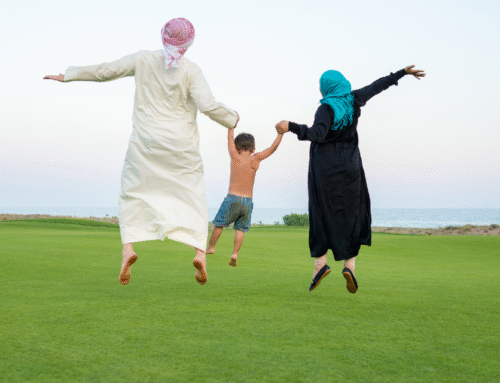When I first started writing this article, I was planning to discuss how the Arab-American narrative is skewed, because it is usually introduced by non-Arabs. I had every intention to highlight this fact to convince the readers of the need for Arab-Americans to own their narrative. Half way into the article, I remembered the criticism I faced when I launched the first crowdfunding campaign in 2014.
I found myself asking a different question.
Does anyone own a narrative?
Double Trouble
As a result, I decided to share some facts that may help you, the reader, understand my predicament. In recent history, western entertainment outlets have portrayed Arabs and Muslims as either the terrorists or the oil rich fat man from the Gulf region. It is not easy for a storyline that portrays otherwise to see the light.
A few years ago, There was a reality TV show based in Michigan about the Muslim community, All American Muslims. It showcased the characters’ lives and their diversity, which proved to be not much different than your average American as apple pie person or family.
Despite the normalcy (or maybe because of the normalcy of it) people bashed it so much, which led its major sponsor, Lowes, to stop sponsoring the show, and the show ended. Yet, television shows and movies portraying Arabs and Muslims as blood thirsty terrorists and greedy oilmen with 20 wives are top rated.
On the other hand, there is an enormous problem when it comes to representation in the media. It is the manner which Arab films and literature discuss homosexuality. Some do it blatantly, and others are more covert. However, one fact is consistent, the homosexual character ends up either dead, imprisoned, repents, or goes through conversion therapy. It is an ending that most Arab viewers and/or readers find justified for such blasphemous characters.
My Failed Attempts
As an Arab-American who grew tired of defending himself and the community at large from the constant accusations, verbal and non-verbal, and how the community deals with common issues that affect so many, I attempted to find a solution to the problem. I gave social activism a shot; I gave the political approach a shot. I even tried to be passive about it. Alas, nothing seemed to work.
It is not a secret that there is growing tension in the world and most of it stems from the terrorist groups who have Muslim and/or Arab origins. And it is my belief that a war on terror won’t solve a thing, it certainly won’t end the problem. It is also my belief that laws which blindly ban certain groups won’t fix the unrest either.
Art is the Answer
However, it is my personal belief that arts and literature are the cure to the problem; they are the cure to many problems within the community and throughout the whole country, if not the world. Literature and arts tell the stories, which are not told in a news story. They highlight unsung heroes.
We can no longer be adversaries, and we are not; we are simply humans attempting to learn about one another to reach a resolution.
Art and literature educate and bind us together.
I wrote a novel that is pro-Arab, pro-Islam, and pro-love and acceptance. The Arab-American and Muslim-American communities are plagued with problems that are not openly discussed; there are social taboos, such as homosexuality and genetic disorders to name a few. And those are things that I openly cover in the novel.
Moreover, the novel discusses issues within the community itself, and while it focuses on the Arab and Muslim communities, these are the same issues that affect many other ethnic communities as well.
Osama, the protagonist, represents a generation that witnessed wars, international acts of terrors, the biggest refugee crisis, a financial meltdown, globalization, freer sexuality, and the internet. He experiences most of these things first hand along with the struggle of finding his true self and his place in a world that is constantly changing.
It is also an attempt to make sense of the world while stripping away all labels that divide us as humans, and digging deep into the core of the human soul to shed light on our commonalities.
And on a personal level, it’s something I wish to share with my own kids one day to hold me accountable, if they ever decide to choose a path different than mine. I want them to know it is ok to do so.
Osama’s Jihad is the first of many projects under the Pita Bread American umbrella, which will hopefully include my own work and the work of other artists and writers to tell the Arab-American story and many other stories from all parts of the world.


